Chef’s Table: An interview with director and producer Brian McGinn
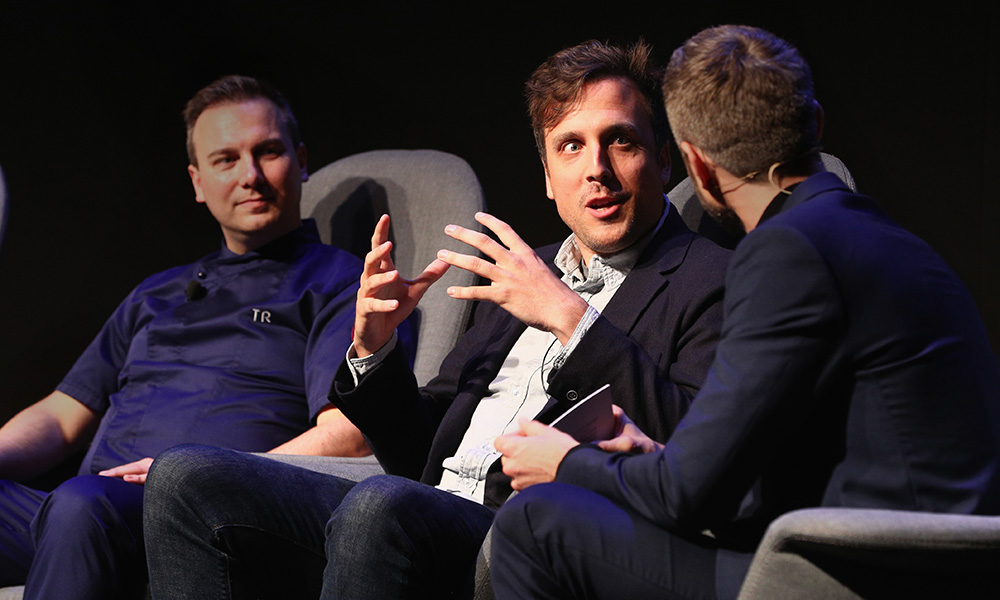
Chef’s Table set out with the aim of being “the animal planet of the food world” and since being greenlighted by Netflix it’s certainly lived up to that lofty title. One of the most popular and compelling shows about food currently on air, and arguably ever, it’s given viewers an unparalleled insight into some of the most fascinating kitchens in the world. We caught up with the passionate and effusive Brian McGinn, executive producer of the show and director of several episodes, to find out more.
Chef’s Table seems to be more about the human drama of being a top chef and about capturing their personalities sometimes than it is about the food. Is that a conscious choice?
I think that one of the things we look for in the people we choose for the show is not only incredible technical skill, of course, but real passion for what they’re doing. We see it almost as a kind of marriage of a life philosophy and a focus on excellence, and a dedication to doing something great; as much as it can really apply to a lot of creative people we’re making [films] of people who are pushing boundaries and that’s what’s so inspiring for us as well.
Do you find that when you’re in a restaurant that you influence the setup much, tweaking lighting or music or other factors to get the best shot, or are you generally as non-intrusive as possible?
What we do is work with each chef to work out the best way to tell each story: we just in this season made an episode about Jeong Kwan, a nun who is at a monastery and doesn’t even have a restaurant, so our approach to coming in there, we were very respectful of the way that the monastery operated. We made sure to talk to them about the best things to capture, when does prayer happen..? We do a pretty decent setup though, because it’s a reflection of not only the work in the kitchen but of a passionate person and their life’s work.
Was there anyone’s food that was particularly inspiring to shoot?
Sure! I was lucky enough to go to Russia to meet a Vladimir Mukhin, who cooks an old Russian style updated with a modern flair so my director of photography and I sat down and talked about what aesthetic makes sense for that kind of food and so we ended up creating a whole look for his food, based around that mixture of old and new. That was really exciting, and from previous seasons when we showed Grant Achatz, super modernist, every piece looks like a piece of art – that kind of food is just so cinematic and so exciting. We approach it looking at the geometry of the food: how do we make this look as awesome as possible, so we really approach every chef differently
Would you say you’ve made a real effort to break down the barriers there, because that kind of fine dining can be a little bit esoteric, almost pretentious, but the way you’ve conveyed it seems to make it a lot more accessible to people.
To us, there are two answers. We don’t really differentiate between this idea of “fine dining” and someone who again doesn’t even have a restaurant. So one of the things we’re trying to do is look at the whole spectrum of the food world and tell stories about people making food on the street who are dedicated and passionate to that, to people in three Michelin-starred restaurants doing incredible things, so we think that there are great stories all throughout the industry. As far as breaking down the boundaries in the fine dining space, what we’ve found is it changes your perception when you understand where a dish comes from: when food comes from a personal story, a personal experience, we go, “well, I’ve had a similar experience to that, how would I approach that?”. It takes something that is personal for a chef and may seem idiosyncratic at first glance, and makes it universal, and that’s a really exciting thing for us to do, to break down the approachability.
So what is it you look for in a chef, when you’re searching for the next chef to be featured?
We do a lot of research for the show and what we’re looking for is not only great food, we’re looking as well for stories that are really compelling. The people that we’re drawn to the most are people that we want to be inspired by as well: if we’re inspired by the way someone approaches their life and their work, we think the audience will be as well. It’s kind of one of the dirty secrets of the show in a way, that we’re all young, creative people so we get the chance to go out and be inspired by people who have overcome obstacles and that’s something that really connects with people. Every point along the journey of all the chefs featured there’s been some major obstacle they’ve had to overcome: people have said no, terrible experiences that they’ve had to go through in their own lives, and I think that’s something that we’ve all experienced. We’re not all top chefs, but we’re all human, so in a way we’re looking for the combination of human drama, creativity and storytelling.
Is there anyone that you think fits that bill that you haven’t worked with yet, that you’d be really excited to work with in the future?
There are so many people like that, and [laughs] I’d kind of spoil things if I said anything specific but suffice to say that there are a lot of people that we’re really excited about. They really run the gamut from people that hopefully almost no one has heard of to people that are household names.
So there are definitely plans for a fourth season.
Well, we certainly hope so! [laughs] We’re always hoping to do more and there’s so many stories and great places around the world that we haven’t explored, so for us, it’s a chance to hopefully continue to go out into the world and tell more amazing stories
How do you feel the show’s evolved since it’s beginnings? What have you learnt, or changed?
The first season was, in a lot of ways, an experiment for us, in that the show originated from my partner in the show, David [Gelb], who made a film [that was based] on a traditional documentary schedule and it was a different kind of project. So we set out to make a show without a host, trying to tell first-person stories of these great chefs. It was something where there was not really a map of how to do that, and that was one of those reasons why it was so exciting – they were willing to take that chance on some young filmmakers. We were doing something different and that meant we also learnt a lot about how you tell a story, and I think what you’ve seen from the way the show’s evolved through France and to the third season is that we’re really trying to find stories that are outside of the three Michelin star space – Nancy Silverton in LA, who is one of my personal baking heroes, Jeong Kwan obviously, Ivan Ramen – so we wanted to open the door to different kinds of stories and I think we’re going to continue to head in that direction telling a broader swathe of stories.
Do you feel like working with Netflix has opened up those creative opportunities for you that you might not have had with traditional media.
Absolutely! To be able to make a global show like this… We’ve been to most of the continents now, we’re hoping to eventually get to Antarctica. Being able to go around the word and tell stories, in the voices of those chefs, it’s something that you can’t do with the traditional broadcast network. In fact, no one would have really made this show beside Netflix; we were trying to make this show for many years and no one would give us the time of day until Netflix listened and said yes, so we really do owe them quite a bit.
One of the most creative deviances you’ve been able to take is that entire short season dedicated to France. Can you tell us a little bit more about that?
From the very beginning, there have been a lot of iconic food countries: you’d have to say that France, Spain, Japan, China are these countries that have these incredible histories in food, that have whole cultures built around them and, for us, France as a hub of fine dining and the influence it’s had on so many countries, the whole fine dining scene that has become so fascinating all across the world to so many different people, that really was born in France to a great extent. So we wanted to go and tell stories from the greatest chefs in France, like Alain Passard, the Troisgros family, people that are iconic, best in the world chefs but also show these new and creative sides: younger people like Grattard who’s fusing Chinese influences with traditional French technique and Alexandre Couillon who takes a very personal approach to seafood. We wanted to share those viewpoints, to show the way the French food scene is evolving and changing so for us it was just really exciting to dive into the French kitchens like that.
Is there any episode from season three that’s really stood out to you for any reason?
There are two episodes that I feel closest to I think. The Jeong Kwan episode, which I think is just a totally different style and approach from what we’ve been doing, a totally new door to step through for us. I love the idea of telling the life story of this beautiful person who doesn’t have a restaurant but is an incredible cook – that’s just something incredibly inspiring. I loved exploring in Russia; as an American, we don’t have much exposure to Russian cuisine, so you learn about their food history. The food culture there is so fascinating, because in the pre-Soviet era you had incredibly rich food history, and then that really disappears when the Communists come to power and food turns to fuel. Then after the fall of the Union…there’s this real outpouring of all of these foods and cultures that had really been cut off under Soviet rule. And now today in 2016/17, you see this rise again of traditional Russian food looking back towards the past and applying modern aesthetics to it. I had absolutely no idea about that whole food culture and [got] to dive into something that is not known.
You’re clearly fascinated by the narratives in food, but so far you’ve focussed very much on chefs and restaurants. You’ve also previously worked with Dan Barber, whose wastED pop-up is currently provoking a lot of thought here in London. Do you feel like in the future you’d be interested in exploring the narrative of wider industry issues, similar to how he has but from a cinematic point of view?
One of the things that we did when we worked with Dan was “how can we share his philosophy about certain issues, in the context of this human story”. So there’s always a human connection for us, first and foremost, and I think that we’re interested in is exploring all elements of the modern food world, but we always want to be doing it through that human lens. It provides a great framing device to explore some of the issues like Dan does with wastED.
What do you think about the kind of explosion of interest in food?
I think Magnus Nilsson in our first season said it best: “We all need to eat, so I think it’s only natural to be interested in it”. The internet and social media have provided a totally new way of for us to discover all sorts of possibilities, so it’s natural for us to be fascinated by food and the creativity of the food world. So long as people have the need to eat, they will remain fascinated by the different approaches people take.
What were your highlights from the three episodes you directed in the first two seasons?
[Laughs] They were all highlights in their own ways. I remember the first day of shooting on Chef’s Table, which was a frightening moment but also a really exciting moment – we were setting out on a journey that we didn’t know where it would lead us. It was one of the better meals I’ve ever had on my life… The dead of winter with Magnus Nilsson in this fairytale land was incredible, and his vision and singular focus was really inspiring. Then working with Grant Achatz, who I think is one of the creative geniuses of the field was just… I’ve remained in touch with all of them, and that’s one of the really awesome things about the show, being able to form those connections with these people that we admire so much.
Are there any restaurants in England that you have your eye on, either in London or elsewhere?
Yes! There are so many restaurants that I love in the UK but…
You can’t really say? Well, talking as Brian McGinn, outside of Chef’s Table…
Speaking from a personal point of view, I love Bocca di Lupo, I love Clove Club, Lyles is fantastic, I love Black Axe Mangal. There are so many great places: I had the chance to have a meal at the Sportsman, which was fantastic. I don’t know if you’ve been down there…
I actually come from Whitstable, the Sportsman is my local!
That’s so funny. See, there’re so many places in the UK that are so exciting right now; you’re going through a real renaissance. We’re not sure where and when yet but we’d love to come over and make an episode here.
You give a great insight into the kitchen, demystifying what’s going on and telling these incredible stories, but what’s the human experience behind capturing the human experience? How long does it take you to shoot? What challenges do you have?
We’re shooting for about eight-ten days for each episode. The hardest thing is that we land in a brand new place, a lot of times in a brand new culture, and we have to figure out in 24/48 hours exactly what we’re going to do [laughs wryly]. So we plan a lot and do a lot of research ahead of time, but there’s still those couple of days where we have to pull everything together so those first few days are all always really exciting but there’s lots of challenges: we’re meeting the chef in person for the first time, scouting locations, lighting kitchens and we’re trying to figure out how to best tell the story. We always sit down for a meal at the restaurant and each director and their DP [discuss] how they’re going to approach this, so those first couple of days are fundamental. Every director is different, I do a lot of long interviews and other directors take a much more observational approach, so everyone tells their story a different way and of course each of the chefs themselves then has their own different story.
How do you find the chefs view your presence there?
We found that now people are really, really excited about having their story told and I think that a lot of times, the way that we’re forming a connection is because we’re showing a lot of passion for the thing that they’ve dedicated their lives to, so they can relate and want to share their own passion with the world. So that’s something where we feel lucky, that these chefs trust us to tell their story. Hopefully they feel that we’ve done them justice in the films that we make and that’s what it’s about for us, honouring that trust.
Daniel Masters
Photo: Netflix
Chef’s Table Season 3 is available now on Netflix.
Watch the trailer for Chef’s Table Season 3 here:

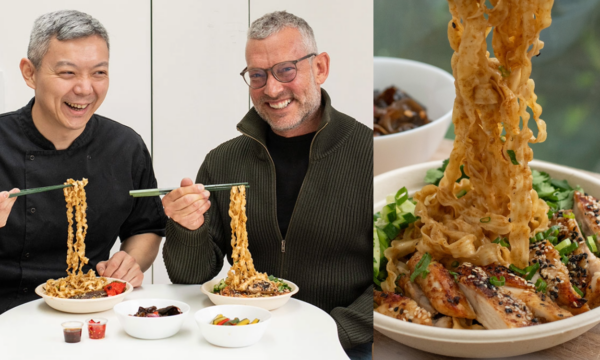
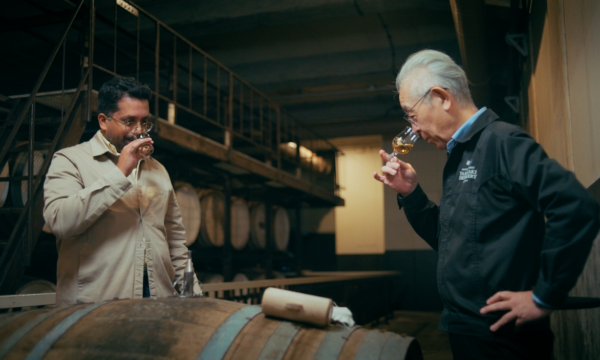
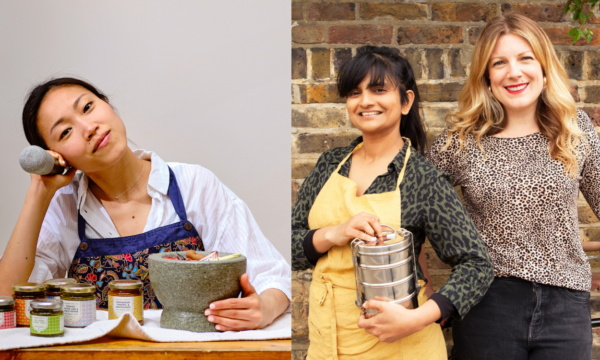
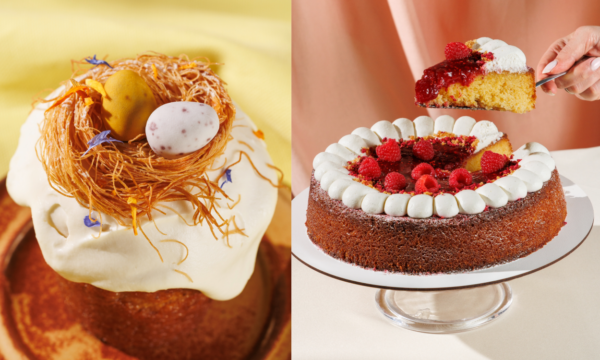
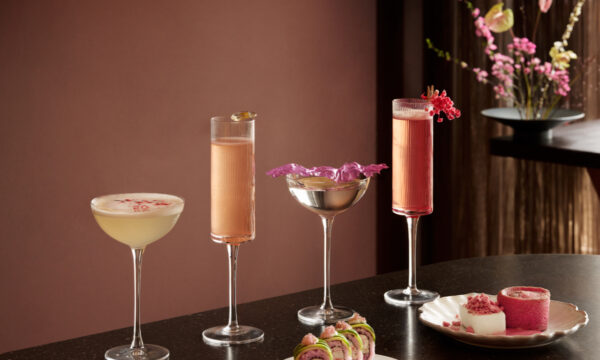
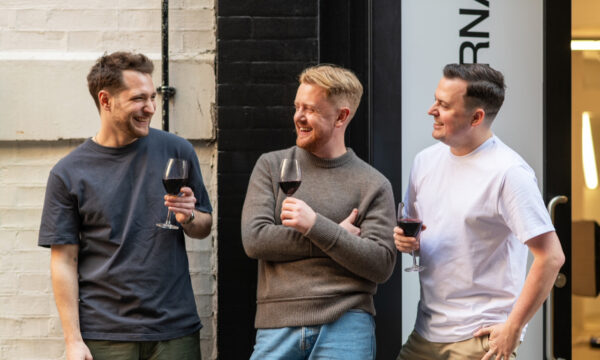
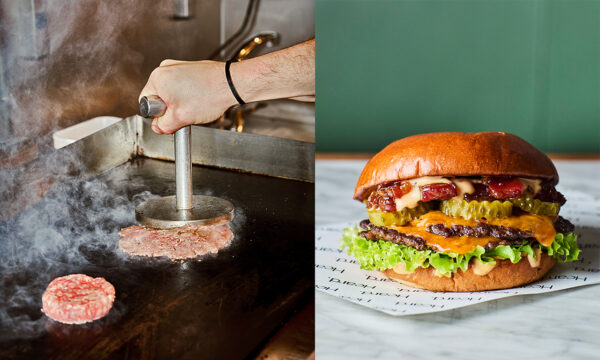
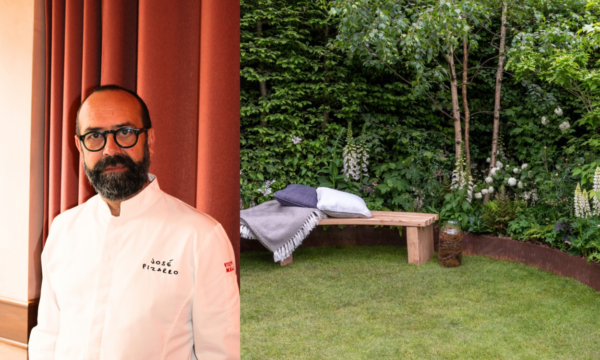
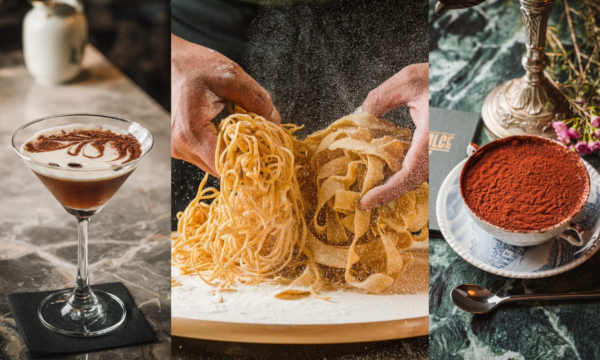










Facebook
Twitter
Instagram
YouTube
RSS